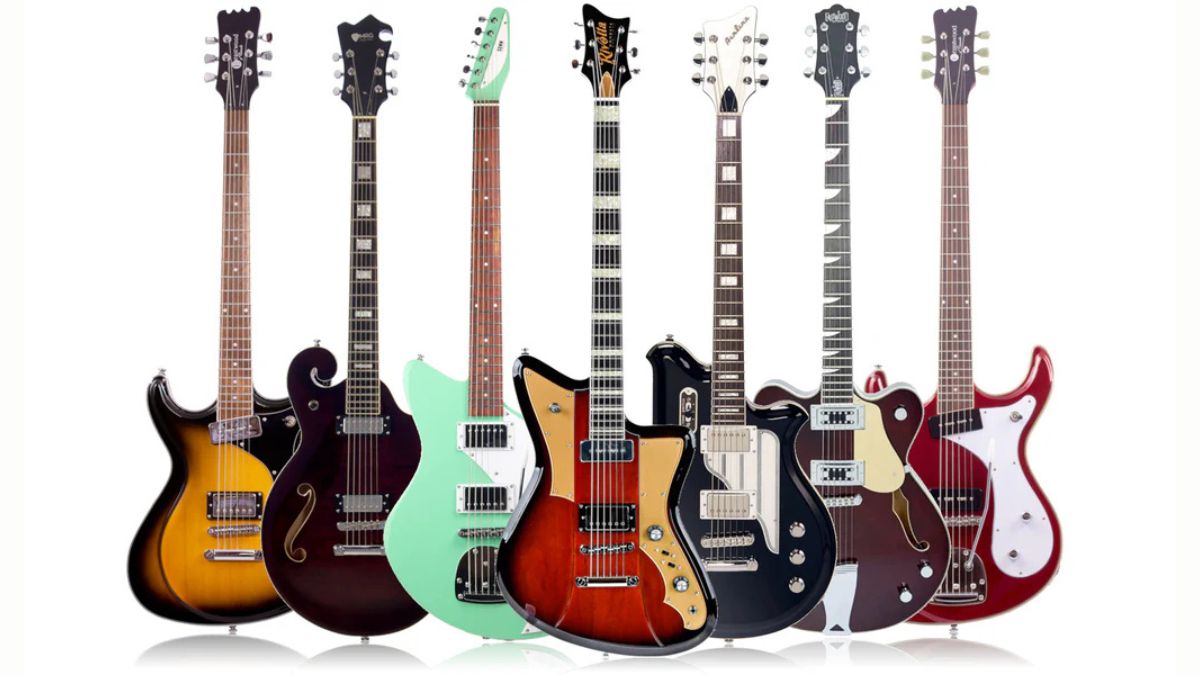If you’re looking to expand your musical horizons, the baritone guitar might just be your new best friend. This unique instrument bridges the gap between standard and bass guitars, offering a rich, resonant sound that adds depth to any musical ensemble. Whether you’re an aspiring musician or a seasoned player curious about new tones, exploring the world of baritone guitars can unlock fresh creative possibilities. With its distinctive tuning and character, this instrument is gaining popularity across various genres—from rock to jazz and everything in between. Let’s dive into what makes the baritone guitar so special!
History and Evolution of the Baritone Guitar
The baritone guitar has a fascinating lineage that traces back to the early 20th century. Originally developed to fill the tonal gap between standard guitars and bass instruments, it quickly gained traction among musicians seeking deeper resonance.
In its infancy, the instrument was primarily used in folk and jazz circles. Its rich sound complemented various genres beautifully. Over time, innovations in design led to improved playability and versatility.
By the late 1960s, rock bands began incorporating baritone guitars into their music. The deep tones provided a unique sonic palette that captivated audiences. Artists like Duane Eddy showcased its potential through surf rock riffs.
Today, baritone guitars are embraced across multiple genres—from country to metal—allowing for creative exploration beyond traditional boundaries. Their evolution continues as modern luthiers experiment with materials and technologies to push this instrument further into new territory.
Unique Features and Characteristics of a Baritone Guitar
The baritone guitar stands out with its distinct tonal range, bridging the gap between a standard guitar and a bass. Typically tuned lower than traditional guitars, it offers deeper resonance that can enrich any musical composition.
Its body size is often larger than regular acoustic guitars, allowing for enhanced sound projection. Some models feature longer necks and wider fretboards, making them quite unique in playability.
Another characteristic is the string gauge; baritone guitars usually use heavier strings to accommodate the lower tuning. This results in a thick, warm sound that resonates beautifully through various genres like rock and jazz.
Additionally, many players appreciate its versatility. You can strum chords or pick intricate melodies while still achieving a rich tone. Whether played solo or within an ensemble, the baritone guitar brings something special to the table.
Tuning and Playing Techniques for a Baritone Guitar
Tuning a baritone guitar typically involves lower pitches than standard guitars. Most players opt for B to B tuning, which brings the strings down a whole step or more. This deep resonance adds richness and weight to your sound.
When it comes to playing techniques, fingerpicking is highly effective on a baritone guitar. The thicker strings respond beautifully to this style, creating warm melodies and complex harmonies. Strumming can also work well but may require some adjustment in technique due to the heavier gauge of strings.
Experimenting with different tunings can unlock new creative possibilities. Open tunings like DADGAD open up unique voicings that complement its low tones perfectly. Whichever method you choose, embrace the depth of sound that only a baritone guitar can deliver while exploring diverse musical styles!
Popular Songs and Artists Who Use Baritone Guitars
Baritone guitars have carved out a unique niche in the music world, with numerous artists showcasing their rich tones. One standout example is the legendary band The Ventures. Their surf rock sound often features baritone guitar riffs that add depth and character to their tracks.
Additionally, bands like R.
E.
M. have employed this instrument to craft memorable melodies. Peter Buck’s use of the baritone guitar creates an ethereal quality in many songs, enhancing the overall atmosphere.
Don’t overlook contemporary artists either. The alternative rock duo Twenty One Pilots has also embraced the baritone guitar for its distinct vibe. Its presence can be felt throughout their discography, contributing to their signature sound.
Even genres like country benefit from this instrument’s resonance. Artists such as Johnny Cash have integrated it into various songs, adding a darker edge that complements his deep vocals beautifully.
Advantages and Disadvantages of Playing a Baritone Guitar
Playing a baritone guitar comes with its set of perks. The deep, rich tones offer a unique sound that can enhance various musical styles. This instrument’s extended range allows players to explore new sonic possibilities and creates an interesting texture in compositions.
However, it also has some drawbacks. Baritone guitars tend to be heavier and bulkier than standard guitars, which can be uncomfortable for some players. The tuning can feel unfamiliar at first, requiring adjustments in technique and chord shapes.
Additionally, finding the right strings can be challenging due to their specific gauge requirements. This means you might have to experiment before settling on what works best for your style.
Despite these challenges, many musicians find the investment worthwhile for the distinctive voice a baritone guitar brings to their music. It opens doors creatively while adding depth and resonance that is hard to replicate with other instruments.
Tips for Choosing a Baritone Guitar
Choosing a baritone guitar can be exciting yet overwhelming. Start by considering your budget. Baritone guitars come in various price ranges, so know what you’re willing to spend.
Next, think about the body style. Do you prefer an acoustic or electric model? Each offers distinct sounds and playability.
Pay attention to the scale length as well. A longer scale often provides deeper tones but may require more finger reach. Try out different models to find what feels comfortable for your hands.
Don’t overlook the materials used in construction either. The type of wood impacts tone and resonance significantly.
Consider brand reputation and customer reviews before making a decision. A little research goes a long way in finding the right instrument that resonates with your musical style and aspirations.
Conclusion
The baritone guitar is a unique and versatile instrument that offers musicians an opportunity to explore deeper sonic landscapes. Its rich history adds depth, while its distinct features provide endless creative possibilities. From alternative tunings to playing techniques, the baritone guitar invites players to experiment with their sound.
Artists across various genres have embraced this instrument, showcasing its adaptability and appeal. The advantages it presents in terms of tone and range can enhance any musical project, though there are some considerations regarding playability and setup.
Choosing the right baritone guitar involves consideration of personal style and genre preferences. With thoughtful selection, you can unlock new dimensions in your music-making journey.
Whether you’re drawn to its deep tones or looking for something different from the standard six-string experience, diving into the world of baritone guitars opens up a whole new realm of creativity waiting to be explored.





